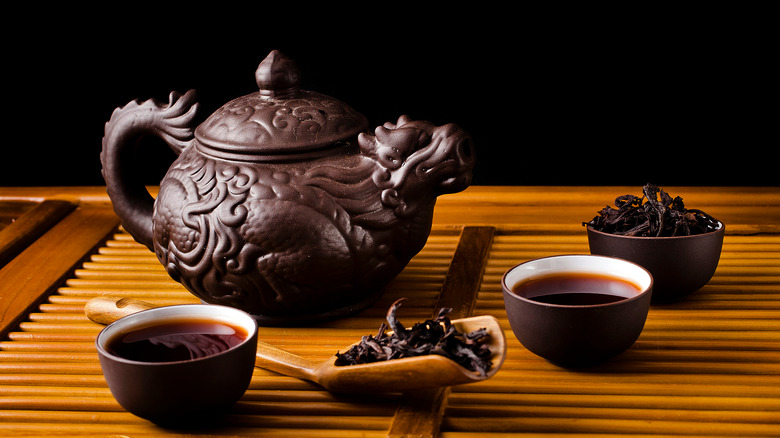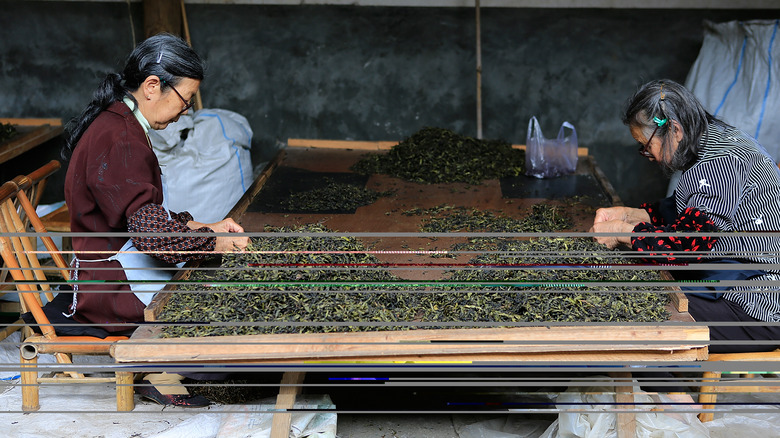The Real Reason This Chinese Tea Is More Valuable Than Gold
There are few things in the world as globally practiced as drinking tea. The calming beverage, drunk at all times of the day at different temperatures, is quite valuable to the economies of several countries, particularly in Asia. Some of the rarer, finer tea leaves are highly sought after and valuable, especially since tea-drinking culture has been around for over a thousand years. Some teas are worth their weight in gold, and in the case of Da Hong Pao, teas can be worth over 30 times their weight in gold (via BBC).
In 2002, 20 grams of original Da Hong Pao went for an eye-watering equivalent of $28,000 USD in China. The dark, shriveled leaves are among the most expensive in the world, where a single pot will set back buyers over $10,000. The tea comes from Wuyishan, a small town in southern China where the striking landscape is packed with flavor-enhancing minerals to turn the riverside village into a tea paradise.
Original Da Hong Pao is the most expensive tea on the global market
According to Let's Drink Tea, Da Hong Pao (which translates to Big Red Robe) is known for its sweet, woodsy taste and lack of bitterness and is the most expensive tea sold on the global market. The reason for its golden price point is the scarcity of the original tea bushes. Only six of the original trees still stand today, three of which date back to the Song Dynasty period over 1,000 years ago. Most Da Hong Pao tea sold today is made from clippings of the original plants, which are similar in quality but much more affordable at $100 per kilogram.
It's the original Da Hong Pao that makes gold look like pyrite. Antique blends are particularly priceless, requiring a network of specialist brokers that are called upon when ultra-rich tea fanatics wish to buy or sell some of this liquid gold. After 2007, the Chinese government declared that the three ancient trees would no longer have tea picked from their bushes to preserve their longevity, making the antique original tea leaves even more valuable than they were before. Luckily, asexually produced clone bushes were judged to be close to identical, although an influx in popularity means it's hard to find leaves labeled Da Hong Pao that taste like their ancient golden counterpart.

